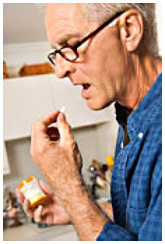Raise Awareness of Medication-induced Xerostomia
Raise Awareness of Medication Induced Xerostomia The cause and effect relationship of xerostomia—commonly called dry mouth—to overall oral health is little known among the general United States patient population. Consequently, the American Dental Association (ADA), Academy of General
 The average American is not well-versed on the relationship between xerostomia and overall oral health. Consequently, the American Dental Association, Academy of General Dentistry, and American Academy of Periodontology have teamed with the American Pharmacists Association to expand awareness of this condition that, when left untreated, has serious implications for oral health.
The average American is not well-versed on the relationship between xerostomia and overall oral health. Consequently, the American Dental Association, Academy of General Dentistry, and American Academy of Periodontology have teamed with the American Pharmacists Association to expand awareness of this condition that, when left untreated, has serious implications for oral health. 
